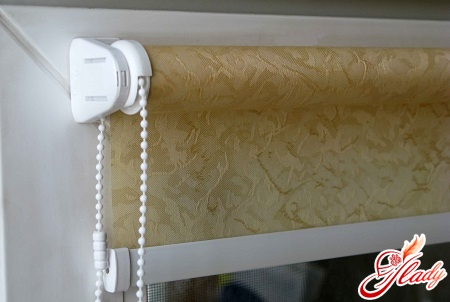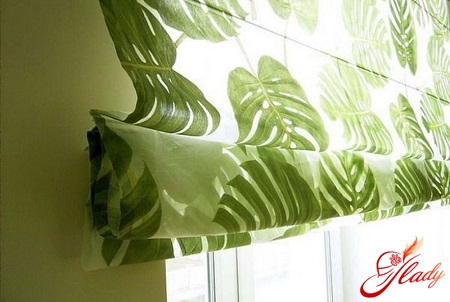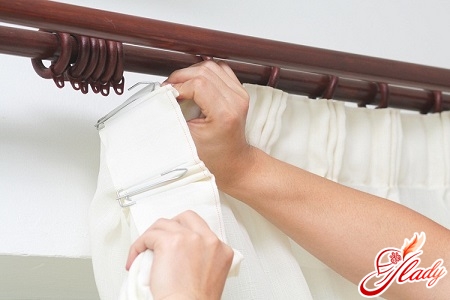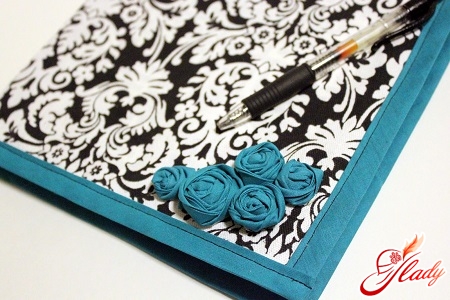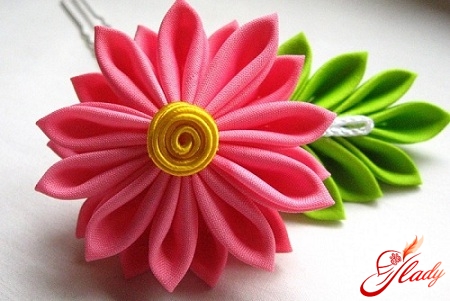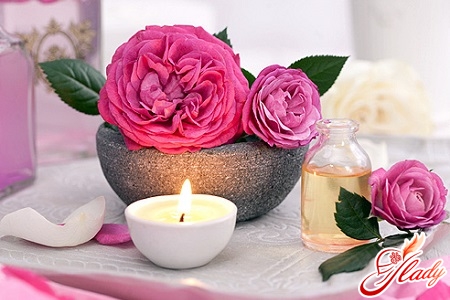 It's hard to believe, but until the beginning of the 20th century, everything was withoutWith the exception of perfumes, natural ones were used. Cleopatra herself, the greatest beauty of women, also became famous for her skillful creation of perfumes with her own hands, the exotic exquisite aromas of which became part of the queen's magical charm. But the rapid development of chemical science and industry made its own adjustments to the perfume industry - synthetic products appeared. Synthesized aromatic substances, of course, immediately allowed to reduce the cost of goods, although the exclusivity of perfume was lost. The fact is that perfumes prepared from the same flowers, but collected at different times, will naturally have different aromas, and synthetic perfume of a certain brand will always smell the same. However, everything returns to normal. The growing popularity of aromatherapy, a fairly large selection of absolutes and essential oils have again awakened interest in the almost forgotten art of natural perfumery: perfumes made with your own hands. Oil perfumes, solid perfumes, alcohol and alcohol-free perfumes, deodorants, eau de toilette, perfume pencils and perfume creams – all of this can be made with your own hands at home. The main advantage of such natural compositions is the unique opportunity to invent your own, unique scent, playing with various combinations of essential oils. It is also worth noting the healing effect of such perfumes, since properly selected aromatic oils balance the general condition of the entire body as a whole, and also fight stress. Mastering the craft of perfumery is not at all difficult: to begin with, it is enough to have creative imagination and a good knowledge of the theoretical base. Over time, you gain your own experience and hone the skills of an inveterate perfumer. In the end, creating perfume with your own hands is a fascinating activity!
It's hard to believe, but until the beginning of the 20th century, everything was withoutWith the exception of perfumes, natural ones were used. Cleopatra herself, the greatest beauty of women, also became famous for her skillful creation of perfumes with her own hands, the exotic exquisite aromas of which became part of the queen's magical charm. But the rapid development of chemical science and industry made its own adjustments to the perfume industry - synthetic products appeared. Synthesized aromatic substances, of course, immediately allowed to reduce the cost of goods, although the exclusivity of perfume was lost. The fact is that perfumes prepared from the same flowers, but collected at different times, will naturally have different aromas, and synthetic perfume of a certain brand will always smell the same. However, everything returns to normal. The growing popularity of aromatherapy, a fairly large selection of absolutes and essential oils have again awakened interest in the almost forgotten art of natural perfumery: perfumes made with your own hands. Oil perfumes, solid perfumes, alcohol and alcohol-free perfumes, deodorants, eau de toilette, perfume pencils and perfume creams – all of this can be made with your own hands at home. The main advantage of such natural compositions is the unique opportunity to invent your own, unique scent, playing with various combinations of essential oils. It is also worth noting the healing effect of such perfumes, since properly selected aromatic oils balance the general condition of the entire body as a whole, and also fight stress. Mastering the craft of perfumery is not at all difficult: to begin with, it is enough to have creative imagination and a good knowledge of the theoretical base. Over time, you gain your own experience and hone the skills of an inveterate perfumer. In the end, creating perfume with your own hands is a fascinating activity!
Types of handmade perfume
So, to create a natural perfume,You will need essential oils and a base, or carrier substance: base oil or alcohol. The same aromatic oils in alcohol and oil will smell completely different. Oil perfumes (wax-based) are usually more durable, but their aroma is more restrained; alcohol-based perfumes are more saturated and intense, but they fade faster. Oil perfumes do not require long aging, they can be used on the day of preparation, while alcohol perfumes are distinguished by a long aging period: from 2 weeks to 3 months. In addition, alcohol mixtures can be applied to hair and sprayed on clothes. The following oils are used as base components of natural perfumery: jojoba, cocoa butter, wheat germ, grape seed oil, olive, almond. Almond oil is an excellent solvent for essential oils and a fixer for their scent. In addition, it effectively cleanses and moisturizes the skin. You can make your own perfume based on it in just a few minutes, just by pouring two or three drops of the mixture of selected oils into a container with one teaspoon of almonds. And jojoba oil is extremely resistant to oxidation and mixes wonderfully with any aromas. If you have decided to mix aromas to your taste for the first time, then start with a small amount of different essential oils. All essential oils can be purchased in specialized stores, special cosmetic departments of supermarkets and online stores.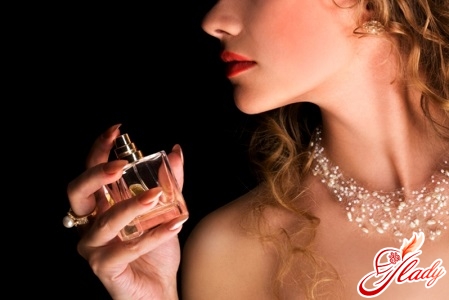
Structure of handmade perfume
Getting started with DIYperfume, first master the basics of structuring a perfume composition. Know that all classic perfume compositions are composed according to the principle of combining three main notes, each of which represents a certain aroma or a mixture of smells of varying intensity. And all together they represent three phases of smell:
The first phase (or spirit head) is usuallyconsists of perfume materials that evaporate quickly: nutmeg, basil, thyme, lavender, rosemary, bergamot, lemon, orange oil, etc. This top note in the composition is of great importance, since it creates the very first impression of the perfume and seems to prepare us for the main aroma. The second phase (the heart of the perfume) is the main aroma of the perfume. It connects the head and the base and is usually composed of materials with a slower evaporation, which are combined in the composition, shading and complementing each other: sage, palmarosa, juniper, ylang-ylang, wild lily, jasmine, rose. The third phase (base) of the perfume consists of substances with the lowest evaporation threshold, which last on the skin longer than all the aromas. These are vanilla, tuberose, cassia, patchouli, cedar, sandalwood. They are also supplemented by the smells of fruits, musk, oriental spices, moss, etc. Some essential oils sometimes move from one group to another. The only necessary condition is that the integrity of the compositions is not violated. These phases appear only in a certain sequence. Over the course of 5-30 minutes, the scent changes, and after that, only the “heart note” will remain on your skin for several hours. And after 12-24 hours, you will only smell the base note, which will remain until the scent itself disappears. That is why choosing a scent slightly reminds us of planning the future: what will come first, what will come next, and what will come last.
How do you make perfume yourself?
To start with, three oils will be enough foreach of the phases (notes) of the aroma. But, for example, floral oils of jasmine and rose are noticeably expensive. Therefore, until you decide which direction of the aroma you like, it is better to use such affordable oils as myrtle, geranium and ylang-ylang oil. In addition to essential oils, you will need a base or base (carrier). For these purposes, as already mentioned, alcohol or one of the listed oils is suitable. You will also need small vessels to dose and mix essential oils. The vessels can be anything - bottles, flasks, flasks with a volume of ten to one hundred milliliters. Remember that they should be quite voluminous so that it is convenient for you to mix the oils. At the same time, these vessels should not be too large, because the less air gets into the vessel, the better. In general, everyone who begins to engage in perfumery and study in detail the recommendations on how to make perfume with your own hands should acquire all the appropriate accessories:
- snuff paper strips of 10 cm for combinations of essential oils;
- convenient containers for mixing components;
- pipettes for measuring the required amount of material;
- cute bottles, in which spirits will be poured.
To determine the aroma you will needsniffing paper strips. That is, highly absorbent paper strips, which are usually used to test a scent. They are really necessary - if you "taste" the scent straight from the bottle, you will not be able to feel all of its nuances. One way to mix different essential oils is to wet different sniffing papers with these essential oils. Then they determine whether the scents are suitable for each other by evaluating their various combinations. This is how professional perfumers taste scents. Although you still will not be able to understand what the final character of the created scent will be. Firstly, the aromatic substances in their final form are diluted to a concentration of 4% to 25%, which, naturally, significantly changes their "sound". Secondly, any perfume should mature for 2-3 weeks for its final smell to form. First, take the base note (phase) that you like the most. For example, patchouli oil. Patchouli is a very powerful and multifaceted scent. That is why it is best combined with any soft base note, such as tonka bean oil or vanilla. The next step is to apply one drop of patchouli to a paper sniffing strip and one drop of vanilla oil to another. Bring them, crossed but not stacked, to your nose. Assess whether you like this combination of smells. If you like it, then add both oils to the prepared vessel. Try to document each of your steps step by step, that is, write down the exact amount of each oil used for the perfume composition. You should also write down the company from which you bought a specific oil. Such documentation, of course, is not mandatory, but it will allow you to recreate your favorite scent later. So, if you like the base note, you can add a heart note to it. Rose or geranium go well with patchouli. And patchouli combines well with ylang-ylang oil. And as a top note, you can easily add red orange to the patchouli-rose mixture, and bergamot to the patchouli-ylang mixture. After you have mixed all the components of the perfume, you can fix the aroma with food vanillin, vanilla and benzoin. In the 19th century, musk and amber were used for this, but they are very expensive, and in many countries they are even banned for sale. Next, the bottle of perfume must be placed in some dark place for 2-3 weeks to mature. It should be noted that the aroma of alcohol perfume will subtly change every day and even after this period. For this reason, many perfumers recommend leaving the compositions for 2-3 months, and sometimes up to six months. Only after the perfume has matured, it will develop a scent that will stay with it forever. The individual ingredients of the perfume will merge with each other in such an amazing way that sometimes it will be difficult to distinguish what was included in this composition. In any case, the smell of the perfume will change and become complete. During the maturation of the aroma, you can add to your composition those components that you think are missing, or when one of them, on the contrary, manifests itself too dominantly.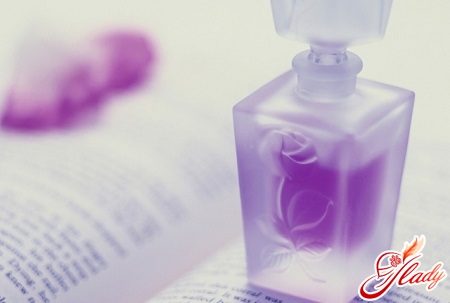
Scheme and recipes of handmade perfumes
So, we offer a basic cooking schemeDIY perfume: the recipes below are based on essential oils with a substance made of alcohol or another oil. To get a 25% concentration of aromatic substances, you need to add a fifth of the essential oils to this substance. If you use alcohol, then add another 2% of purified water at the very end. If you pre-mix the alcohol with glycerin, this will soften its rather sharp smell, and the aroma of the perfume will last longer. These perfume recipes are calculated for the volume of the carrier substance, which is 25 ml. If you need 50 ml at once, then double the indicated amount of essential oils used. Perfume "Adonis" Spicy, but light aroma with oriental motifs. Ingredients:
- two drops - Carnation flower
- two drops - A cinnamon flower
- two drops - Honey
- two drops - Rose
- two drops - Vanilla
- one drop - Musk
- one drop - Beans thin
- one drop - Coriander
- one drop - Basil
- eight drops - Bergamot
- seven drops - Cedar tree
- five drops - Geranium
- five drops-lemon
- five drops - Orange
- four drops - Muscat Sage
- four drops - Lavender
Perfume "Delightful Eva" A very feminine fragrance with a subtle combination of floral and citrus notes. Ingredients:
- fifteen drops - Ylang Ylang
- Eight drops - Rosewood
- five drops - Jasmine
- five drops - Palmarosa
- five drops - Bergamot
- five drops - Mandarin
- five drops - Sandalwood
- four drops - Vanilla
- two drops - Musk
Perfume "Magic of Flowers" A real floral bouquet with a subtle note of fresh greenery. Ingredients:
- twenty drops - Ylang Ylang
- ten drops - Petitgrain
- ten drops - Bergamot
- six drops - Rosewood
- four drops - Vetiver
- two drops - Jasmine
- two drops - Tuberose
- two drops - Rose
- one drop - Musk
- one drop - Beans thin
- one drop - Moss
Solid perfume, handmade
If alcohol-based perfumes need to be infusedfor 3-4 weeks or more in a dark place, then you can start using solid perfumes made with your own hands right away. We are talking about perfumes based on wax and oil. To prepare them, you need to take odorless oil. Fractionated coconut, almond, jojoba, vitamin E are excellent for these purposes.
This is how solid perfumes are made by hand.When making them, you also need to consider that wax has its own smell. As an option, you can, of course, use purified wax. Or choose essential oils that go very well with wax (citrus, ylang-ylang). In addition, wax is an excellent fixative that holds odors for a long time. Knowing how to make perfume with your own hands, you do not have to worry that someone will repeat the same recipe. Since each time it will be slightly, but different perfume, because it is absolutely impossible to measure out all the ingredients “to the molecule”. And as a reward for your work, your skillful hands and rich imagination, you will receive exclusive aromas that will help you create a wonderful mood and even restore inner harmony. We recommend reading:




